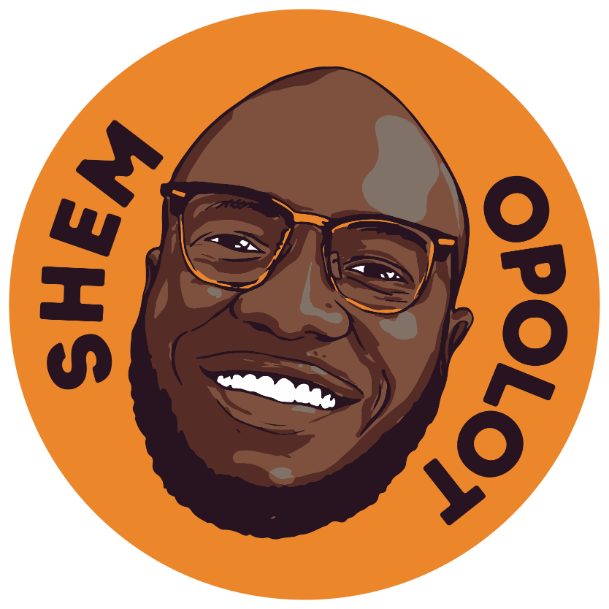I returned from my sweet potato-funded vacation in the wee hours of Saturday morning, and instead of playing peekabo with my son now, I’m fighting a dry cough while sitting in a police box. In the rain.
I’m supposed to be regaling you with embellished tales from Dakar. Like how I was duped into paying $200 for a visa, or how Dakar was hotter than hell when Hitler checked in, but instead, I’m staring at police uniforms and using all the [little] Luganda I know to navigate this corner of Uganda’s justice system. In the rain.
The navy blue half-tin-half-wooden police box, which is the size of a shipping container cut in half, with cutout windows and doors, is frigid. On my left, the policewoman sitting next to me on the sturdier plastic chair has a kind face. The kind of face babies smile at unprovoked. The policewoman is kind but powerless to do more than pity me. Plastered on the wall to my right—the Uganda Police badge. The Crested Crane in the badge’s center looks uneasy standing on one leg. Is this a sign? Do doom and gloom await me here? Will I be served and protected?
The passing human traffic occasionally glances at me as I mount my paltry plastic chair. Some people look concerned; others look disgusted. These onlookers don’t know if I’m a victim or a suspect, but the majority choose the latter.
I parked my car illegally, but in Uganda, your car can’t get towed when you’re just there looking, so I have one eye searching its field of view for the Office Commander’s arrival, and the other watching my car’s perimeter like a cheetah stalking a kob behind the Savannah’s thickets.
While cross-eyed by cross purposes, let me explain what I’m doing here:
John, my house manager (look at how progressive I am), whose greatest weakness and greatest strength are his wits, was arrested on Saturday morning by plain-clothed policemen.
Relax. Breathe. Not those plain-clothed policemen. John is not vying for the precarious throne of the land and there were no unmarked vans involved. Instead, like the village thief, John was dragged by his shirt collar and waistband to the police post 300 meters down the road amid his screams and protests.
Without violating John’s privacy, I’ll say John was paying the price for trying to resurrect altruism from the ashes of its own ambitions.
John tried to do a good thing, but that good deed got him in trouble.
I spent all of Saturday afternoon and evening trying to prevent John from spending a night in the cooler, but the police process, despite the kindness and congeniality of the officers, was slower than the clock in a boring Geography lecture on a hot afternoon in boarding school.
Soon, the sun set behind Acacia mall and on my optimism.
The police wouldn’t release John until all the statements in the matter were gathered. Understandable.
However, I thought the entire day’s discourse constituted statements but apparently, we were just embroiled in long unwanted foreplay with too much tongue and insufficient attention to detail.
I didn’t want to leave John at the station. I love John and consider him part of my family, so it was tough to see him telling his side of the story from behind metal bars in a dark room. My, that room was dark. The room was so dark, it was like John was suspended in a void with only the metal bars to hold onto; his legs dangling and digging like a grasshopper trapped in a polythene bag on its way to my wife’s plate.
I thought of bribing the Office Commander…
What? Don’t look at me like that. When you deal with public servants in Uganda long enough, you learn quickly that the long-winded official is often coveting the contents of your coffers. So, even though I got swindled out of next month’s money by dishonest locals in Senegal, I considered pulling the Office Commander aside and making him an offer he couldn’t refuse.
“100,000 Uganda Shillings ought to do it,” the red devil sitting firmly on my left shoulder, swinging its legs like a toddler on a high stool, whispered.
What? Don’t judge me. John was dangling above a black hole and we live in a morally bankrupt society. One more sin from me wouldn’t tip any scales.
However, bribing a police officer isn’t the kind of thing you want to misread. If I got it wrong, my legs would be co-dangling beside John’s.
The Office Commander explained the due process redundantly. He emphasized—as if to console me—that he believed John was innocent but the system’s ball and chain demanded that due process ran its course.
“I am sorry but this man will not be going home with you today,” the Office Commander said in a statement infused with empathy.
As I distorted my face to evoke sympathy, the Office Commander assured me John would be safe and that I should return at around 10 or 11 the following morning.
So here I am: black running shorts, black T-shirt, black raincoat, black socks, and black skin, praying for bright white outcomes.
Have a good week and don’t bribe police officers✌🏾.
PS: The charges were dropped and John was released on Sunday afternoon.
